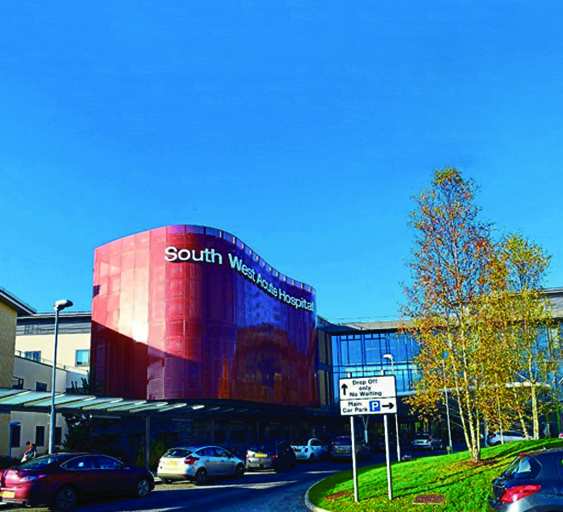THE WESTERN Trust has refused to release information regarding staff and patients’ concerns at the South West Acute Hospital.
A representative from the Save Our Acute Services (SOAS) campaign group – which has been working with local staff and patients regarding the issues and worries they had experienced since the suspension of emergency and urgent surgery at the hospital in December – submitted a Freedom of Information (FOI) request to the Western Trust back in February.
The FOI asked if any concerns had been raised by staff in any department, if any concerns had been raised about the safety of staffing levels, and if any concerns had been raised regarding the removal of services from the hospital.
In its response, the Trust acknowledged releasing the information would show that its staff regularly used its ‘Your Right to Raise a Concern’ whistle blowing mechanism, and that it was demonstrating transparency with the public.
However, it outlined a number of reasons for why it would not be complying with the request.
First of all, it explained that while all its employees could raise their concerns with their managers, via email and in person, it would be excessively time-consuming to gather this information.
“As the Trust has approximately 11,000 staff and does not have a central email or electronic record facility for all emails and files, this would involve contacting all staff to provide this information,” it stated in its response, noting any request that would take longer than 18 hours to comply with was exempt under the rules of FOI.
Second, it stated that releasing the information would undermine the confidentiality of its whistleblowing mechanism.
The Trust said staff did not expect the issues they raised to be made public, and said “whilst the incident may be anonymous, the location and nature of the incident would identify, or misidentify, particular staff or a team.”
The Trust also stated that concerns raised by patients “not be upheld by the Trust and create a public misconception if released” and added, “the release of concerns before they have been fully investigated by the Trust would be likely to prejudice an investigation.”
Overall, the Trust response stated it had weighed up the public interest of releasing the information with the above factors, and had decided to withhold the information.
The SOAS representative who made the request said they were shocked and could not understand why the Trust would not release the information.
“It’s very concerning when people refuse to engage,” they said.
“It was a repeated theme throughout the consultation meetings, where they were asked in the room, and they have also been asked by the media, if there were any issues with safety since the removal of emergency surgery, or surgery in any urgent situation.
“The Trust emphatically stated no, but the stories that we have listened to don’t tally with that.”
The SOAS representative said the campaign group would be continuing to work closely with local staff and patients about their concerns.
“We were very aware when we started this campaign that local lives and equal access to services were at risk. At this stage we are talking and listening to people and evidencing that,” they said. “We are listening to people telling us their services have been compromised.”
They added, “We have become aware of the trust being placed in us by patients and staff, about the reality of many situations. We are collecting the information and representing the people who feel unable to say it out loud.”









